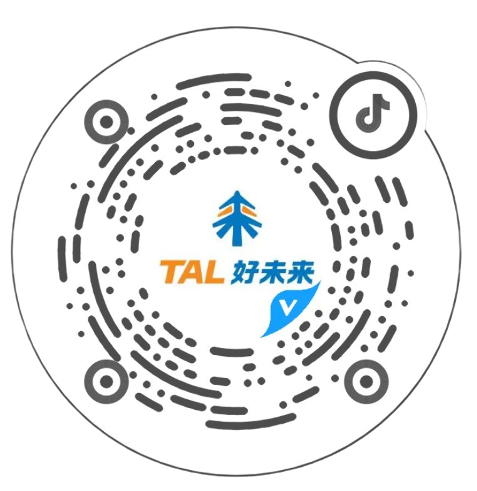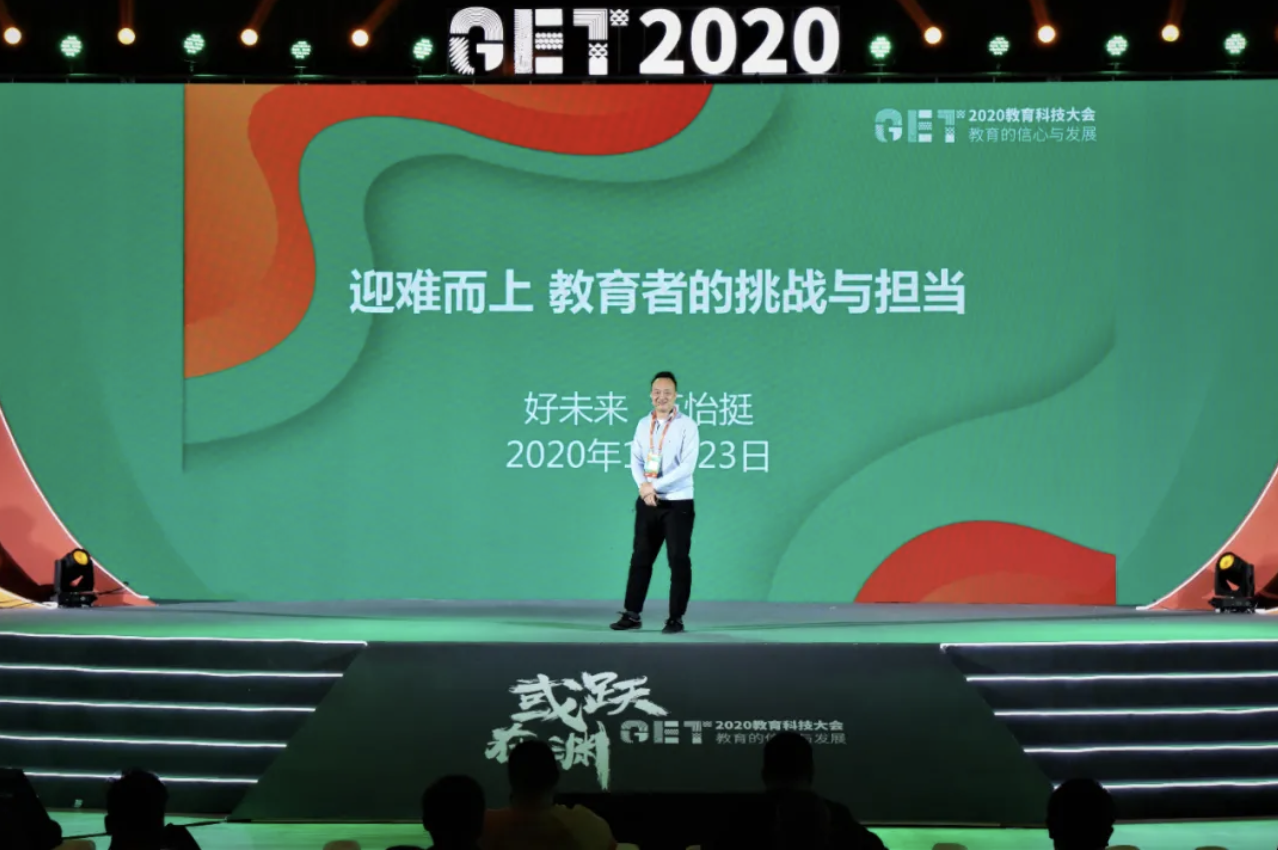




On November 23, the GET2020 Education Technology Conference was held in Beijing. The conference, with the theme "Leap in the Abyss - Confidence and Development of Education," invited outstanding education industry practitioners from home and abroad to discuss the confidence and development of the education industry.
As the representative of the technology education enterprise, Wan Yiting, the CEO of TAL Education Group, was invited to attend the forum and delivered a keynote speech on "Challenges and Responsibilities of Educators: Rising to the Occasion," sharing TAL's important initiatives in response to the epidemic and its collaboration with the industry, as well as its mission to "operate industry, operate education, and operate public welfare" in response to the national call.

Wan Yiting, CEO of TAL Education Group, delivering a keynote speech on "Challenges and Responsibilities of Educators: Rising to the Occasion"
2020 is a critical turning point for the entire education and training industry. The sudden outbreak of the COVID-19 epidemic has posed enormous challenges to the education and training industry, with many institutions facing multiple challenges such as funding, operations, and costs.
"Training and education enterprises have long been struggling to survive in the cracks, which is very difficult and also remarkable," said Wan Yiting, sharing TAL's exploration and practice in helping the entire industry through the epidemic. At the beginning of the epidemic, TAL swiftly built an "anchor" for education using technology, opening TAL's online teaching system to more than 40,000 institutions and 140,000 teachers to help them get through difficult times. TAL's smart education has provided free live broadcast courses to more than 500,000 teachers and students in 49 cities and counties during the epidemic.
During the epidemic, educational enterprises have come together for mutual assistance. In the Changping District of Beijing, 16 companies in the Xuetangx education complex joined hands during the epidemic, pioneering a new path through online and offline education integration, with 15 of them turning a profit. Futrue Star, an education industry learning and exchange platform, united more than 300 alumni CEOs during the epidemic to launch online salons, helping education enterprises analyze actual difficulties they faced, and providing experience sharing, intellectual support, and resource assistance.
On the other side of the epidemic impact is the forced global comprehensive online education experiment. It can be said that the epidemic has opened a "new era" of online education. According to the 46th Statistical Report on the Development of China's Internet issued by the China Internet Network Information Center (CNNIC), during the epidemic, guided by the policy of "suspension of classes but continuing learning," 282 million students nationwide have generally switched to online courses. As of June 2020, online education users in third-tier and below cities accounted for 67.5% of the overall, an increase of 7.5% year-on-year, indicating that online education is rapidly penetrating the lower-tier markets.
Education carries the hopes of millions of families, but achieving inclusive education in remote areas is still a long and arduous task. In addition to promoting the open sharing of high-quality education resources, addressing how to provide better and more equitable education to more children in poor areas is an important issue facing education practitioners.
"Online education, including AI technology, can help reform the supply side of educational public welfare, making educational public welfare more practical, better, longer-lasting, and more precise, achieving large-scale, high-quality, warm, and customized services," Wan Yiting said, noting that TAL is working with industry colleagues to promote supply-side reforms in education poverty alleviation through more intelligent means.
The "Hope Online" APP platform initiated by the TAL Education Foundation, by integrating high-quality education and technology resources, such as TAL's "AI Teacher Chinese Learning System," the first in China to provide 28-minute real-time free online problem-solving "QuestionSnap," and Uncle Kai's storytelling, has helped improve the education level in poor areas, benefiting over 100,000 poor teachers and students in 40 counties in 18 provinces including Shaanxi, Hebei, Guizhou, Xinjiang, Yunnan, and Sichuan. The Longshanyi Public Welfare Foundation jointly initiated by New Oriental and TAL is committed to applying mature and advanced technology in the education and training industry to rural education, promoting the integrated development of urban and rural education, and has landed in more than 400 schools in 21 provinces, benefiting over 100,000 teachers and students.
The Fifth Plenary Session of the 19th CPC Central Committee held recently explicitly stated, "Support and regulate the development of private education, and regulate extracurricular training institutions. Give full play to the advantages of online education, improve the lifelong learning system, and build a learning society." This is the first time "online education" has been mentioned in China's five-year plan proposal, and its advantages are emphasized.In the current normalization of epidemic prevention and control, where will online education go? Wan Yiting gave his judgment that "the integration of technology and education has already presented a new trend." First, the full digitization of the education industry will become a trend, and data-driven capabilities will become one of the core competitive strengths of the education industry, helping education achieve large-scale personalized instruction. Second, artificial intelligence will drive the standardization and personalization of education, allowing education to "reduce costs and increase efficiency." Finally, the application of 5G technologies such as ultra-high-definition video, virtual reality, and holographic video in the field of education will make online education more in line with the real classroom scene and continuously improve the teaching quality and user experience of online education."China is the only major economy in 2020 with positive economic growth, and it is fortunate to be rooted in China to do education," Wan Yiting said, expressing that the Chinese education and training industry is actually at the forefront in terms of technological applications and model innovations. In the future, TAL will continue to believe in the power of love and technology, hoping to achieve mutual success with the country, millions of families, and industry colleagues.